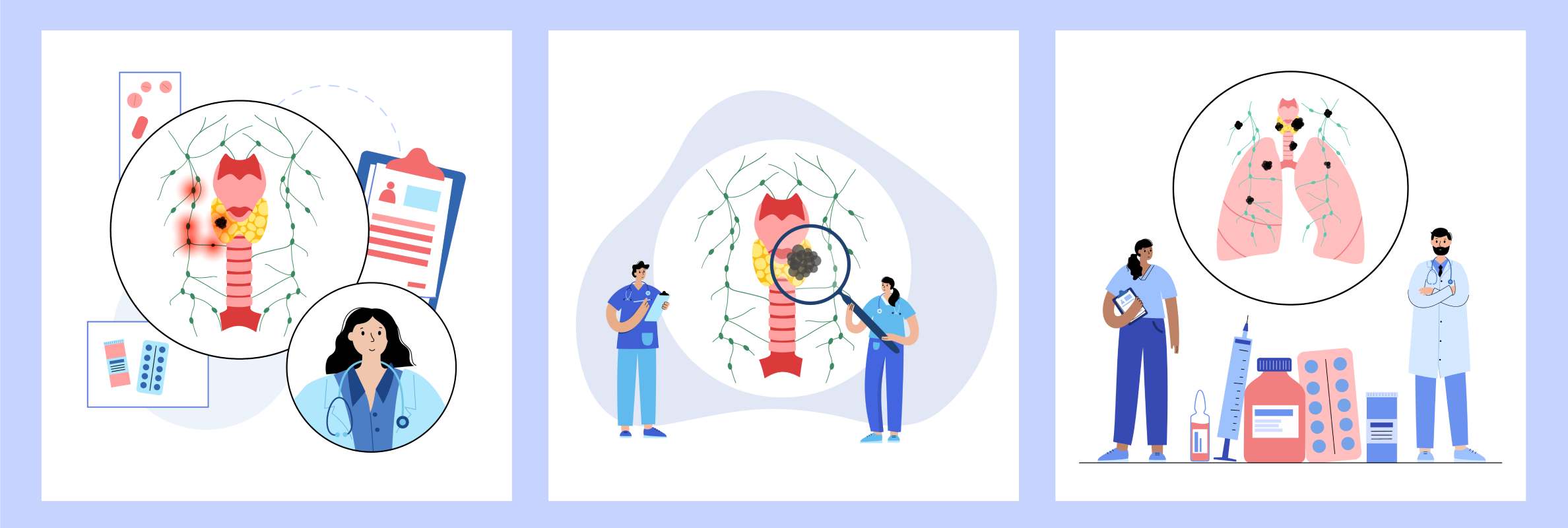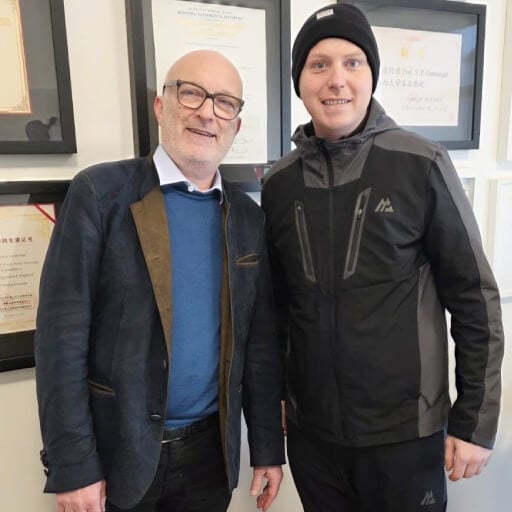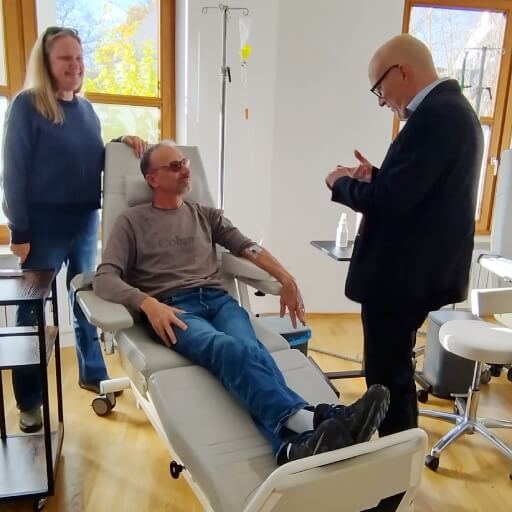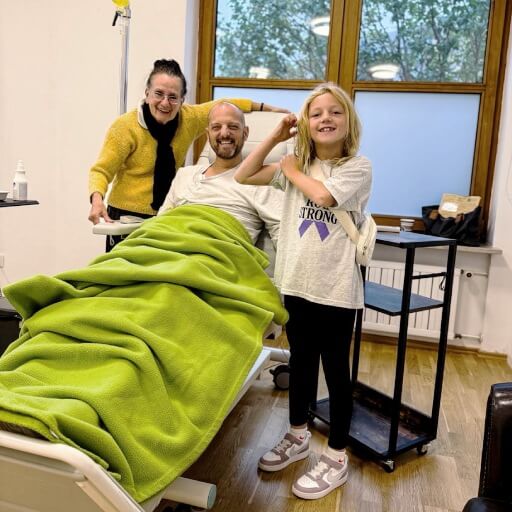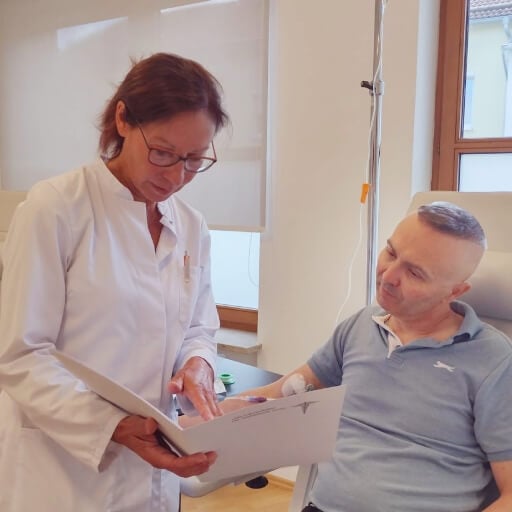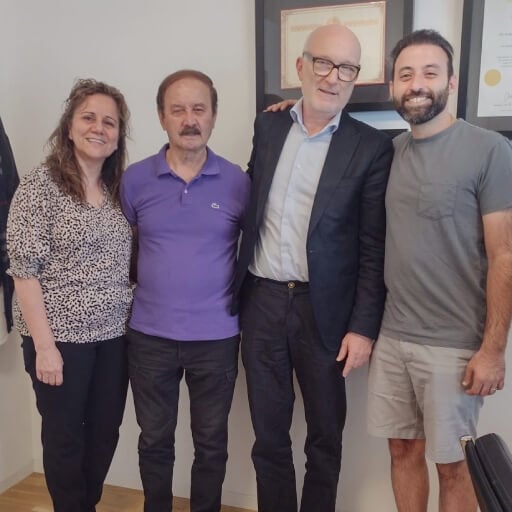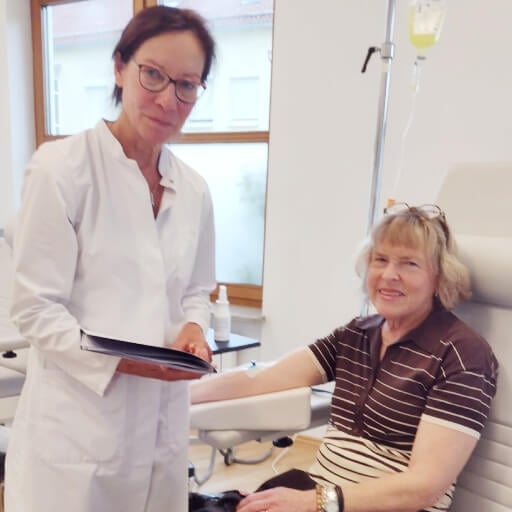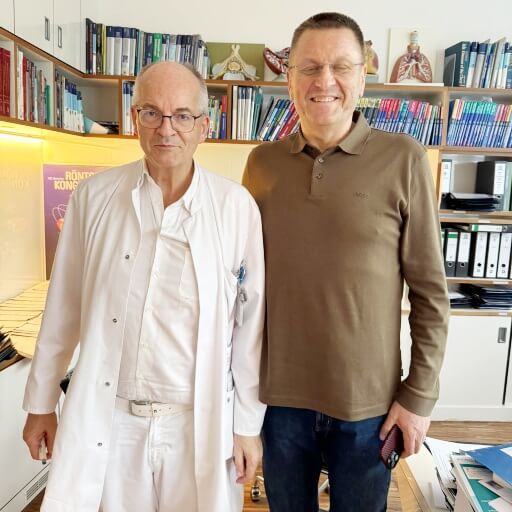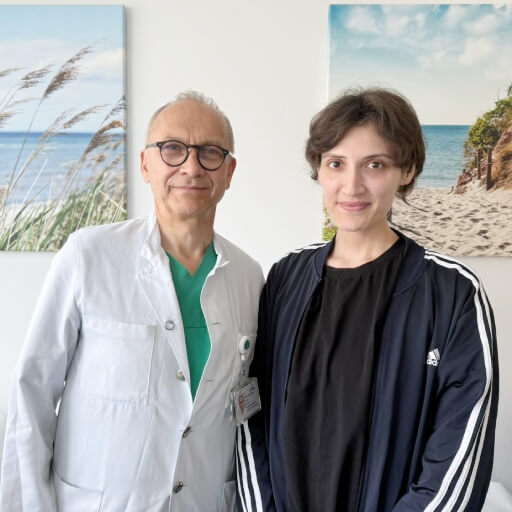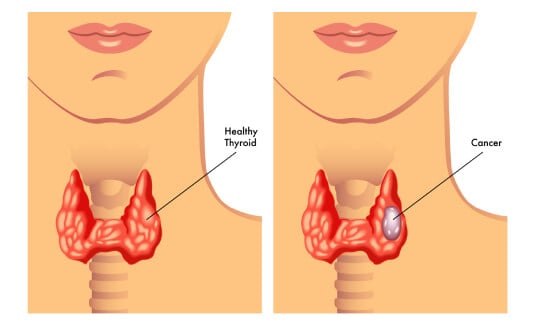Thyroid cancer (TC) remains the most common endocrinological cancer worldwide, with a disturbingly increasing incidence rate over recent years [1, 2]. The reason for this is not only a greater awareness of this malignancy and in-depth diagnosis leading to the early detection of less typical clinical symptoms but also its increasing occurrence due to a continually changing world and environmental threats associated with this.
Environmental factors that are currently distinguished as potential risk factors for TC include the increasing usage of environmental chemicals as well as exposure to heavy metals, radiation, and air pollution [3-7]. Being exposed to the abovementioned factors constitutes an increasing global problem that might result in an increasing incidence of various endocrinological diseases and malignancies, including TC. An increase in the TC occurrence rate is associated with countries with a high or very high human development index (HDI), where TC accounts for 91% of new cases [8]. This growing incidence highlights the urgent need for more effective thyroid cancer treatment approaches and international cooperation in managing complex cases. The following sections discuss how advanced diagnostic methods and innovative treatment strategies in German clinics are improving patients’ chances for recovery.
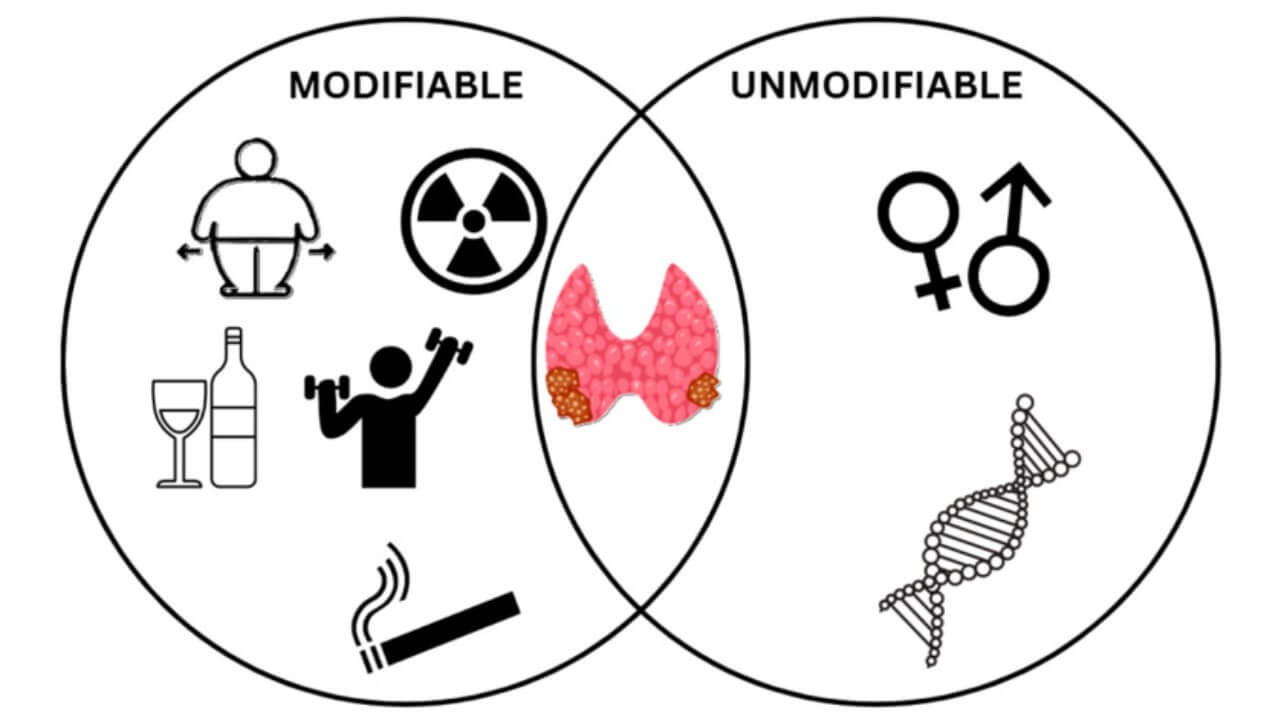
Understanding Stage 4 Thyroid Cancer
Stage 4 thyroid cancer means that the cells have spread beyond the thyroid gland and have metastasized to distant sites — lungs, bones or lymph nodes. At this stage the disease is often more aggressive, and standard treatments (thyroid surgery or radioiodine therapy) may be less effective.
Types of Stage 4 Thyroid Cancer
Thyroid cancer affects the gland responsible for thyroid hormone production and is divided into several main types:
- Papillary thyroid cancer — the most advanced form. Usually slow-growing at early stages, but can spread to lymph nodes in stage 4.
- Follicular thyroid cancer — tends to spread through the blood which increases the risk of distant metastases.
- Medullary thyroid cancer — associated with elevated levels of thyroid antibodies in some cases and requires a combined approach.
- Anaplastic thyroid cancer — the most aggressive type, with a high growth rate and resistance to standard treatment. These facts significantly worsen the prognosis.
Features of Stage 4 Thyroid Cancer
In the fourth stage, thyroid cancer is characterized by:
- Growth of cells to distant organs
- Reduced effectiveness of surgery and radioiodine therapy
- Need for complex treatment methods usage — targeted therapy, RAI and dendritic cell therapy
- Worsening of the prognosis due to the high aggressiveness (when the disease progresses extremely fast) and metastatic involvement of the lymph nodes
For the patient this means that standard methods for treating thyroid cancer, especially for advanced stages, often need to be combined with innovative approaches and an individual treatment plan. This approach allows for maximum adaptation of therapy to the specific type of tumor and the state of the patient's immune system.
Standard Treatments for Thyroid Cancer Stage 4 in Germany
Stage 4 thyroid cancer is characterized by the spread of tumor cells beyond the thyroid gland, lymph node involvement and distant metastases. At this stage, the disease becomes aggressive. Сlassical treatment includes 一 surgical removal of the thyroid gland, radiation therapy and chemotherapy. Although these treatment methods remain the mainstay, their effectiveness is limited due to the pathophysiological characteristics of the tumor and the resistance of some types of cancer.
Surgery for Stage 4 Thyroid Cancer
Thyroid surgery is the basic treatment method which involves the removal of the primary tumor and affected lymph nodes (lymph node metastases). The main goal is 一 to physically remove the maximum number of tumor cells. This allows for reducing the tumor burden and preventing further spread. In anaplastic or advanced thyroid cancer complete removal is often impossible due to the infiltration of the tumor into surrounding tissues, blood vessels or critical organs, which increases the risk of residual cells.
To make the intervention minimally traumatic and minimize the risks of postoperative complications, doctors in Germany use the following surgical interventions:
- Endoscopic interventions — gland removal through small punctures in the neck using endoscopic instruments. The accuracy of the procedure is ensured by image guidance using a miniature camera.
- Robot-assisted surgery — removal of an organ using robotic technology. The intervention is performed by a robot, while a doctor controls the manipulations.
The amount of tissue removed depends on the type of thyroid tumor. For example, in the case of papillary and follicular cancer, surgeons try to remove only a part of the lymph nodes to avoid complications. The resection is followed by radioiodine therapy, which destroys the remaining metastases. This example highlights the role of endocrine surgery in Germany in managing complex cases, a topic Professor Fendrich discusses in detail in the video below.
Radiation Therapy for Stage 4 Thyroid Cancer
Radioactive iodine therapy is used for inoperable thyroid tumors or when surgical removal cannot completely eliminate tumor cells. In this treatment method doctors use high doses of ionizing radiation which damages the DNA of cancer cells, induces apoptosis and stops the division of abnormal cells. Radiation therapy slows the growth rate of the tumor, controls its local spread and helps reduce lymph node involvement.
Problems with radiation therapy include the risk of damage to healthy tissue (which can lead to secondary complications), as well as dosage limitations due to the state of the patient's immune system and general physical condition.
Chemotherapy for Stage 4 Thyroid Cancer
Chemotherapy is used mainly for aggressive forms of thyroid carcinoma 一 such as anaplastic cancer or in the presence of distant metastases. Сhemo acts via cytotoxic drugs targeting tumor cells, interfering with their ability to divide and inducing cell death. This helps to control tumor growth, but at the same time affects normal cells with a high division rate, which leads to side effects.
Limitations of classical chemotherapy include: toxicity to healthy tissues, suppression of the immune system, poor efficacy in resistant forms of cancer and the need for careful monitoring of the patient's condition during treatment.
Problems and Limitations of the Conventional Approaches
At stage 4 thyroid cancer, standard treatment is not always capable of destroying tumor cells and controlling metastases. Aggressive forms of cancer (anaplastic and medullary cancer) are often resistant to surgery, radioactive iodine therapy and chemotherapy. Side effects of classical methods, reduced immune function and drug dosage limitations create additional difficulties for patients. Therefore an individualized treatment plan that combines standard methods with modern strategies for maximum effectiveness is especially important at this stage.
Advanced Treatment Options in Germany for Stage 4 Thyroid Cancer
For patients with stage 4 thyroid cancer standard treatment regimens often do not provide long-term remission. That is why German clinics are actively implementing innovative methods that allow for targeted action on cancer cells. Modern medicine in Germany combines targeted therapy, dendritic cell therapy and other personalized strategies which create new opportunities even for patients with advanced tumors.
Targeted therapy
In the case of anaplastic and medullary thyroid cancer, targeted therapy shows promising results: it helps to stop the progression of the disease, reduce the volume of the tumor and improve the prognosis. This is achieved by affecting the VEGF, RET or BRAF receptors, which regulate the reproduction of tumor cells [10].
Targeted therapy is aimed at molecular targets that control the growth and division of cancer cells [11]. Its mechanism of action is based on blocking the signaling pathways that trigger proliferation and angiogenesis. Unlike chemotherapy targeted drugs do not destroy all cells, but selectively act on those with specific mutations.
The doctors in Germany use several groups of drugs that are selected individually. These include:
- Multikinase inhibitors are drugs that simultaneously block several types of protein molecules in cancer cells. They act using two mechanisms: they suppress the activity of proteins involved in the growth of abnormal cells and inhibit the formation of new vessels required for the blood supply to a malignant tumor. Multikinase inhibitors are available in the form of pills.
- RET inhibitors are used in the presence of changes in the RET gene to block specific molecules involved in the multiplication of cancer cells. Therapy with such drugs can be used for stage 4 cancer of papillary or follicular types if radioiodine therapy is ineffective. RET inhibitors are taken in capsules, 2 times a day.
- NTRK inhibitors are used in the presence of mutations in the corresponding gene. These drugs have been recently introduced into clinical practice — they were approved in Europe in 2019. They are usually prescribed when other treatment options do not give any results. The drugs are taken in the form of pills.
- BRAF and MEK inhibitors are used for anaplastic thyroid cancer, which has limited treatment options. The drugs block molecules responsible for the division of cancer cells.
In leading German clinics patients with thyroid cancer are given an individual treatment plan depending on the type of mutations and the sensitivity of the tumor. This allows for greater effectiveness even in advanced stages and distant metastases.
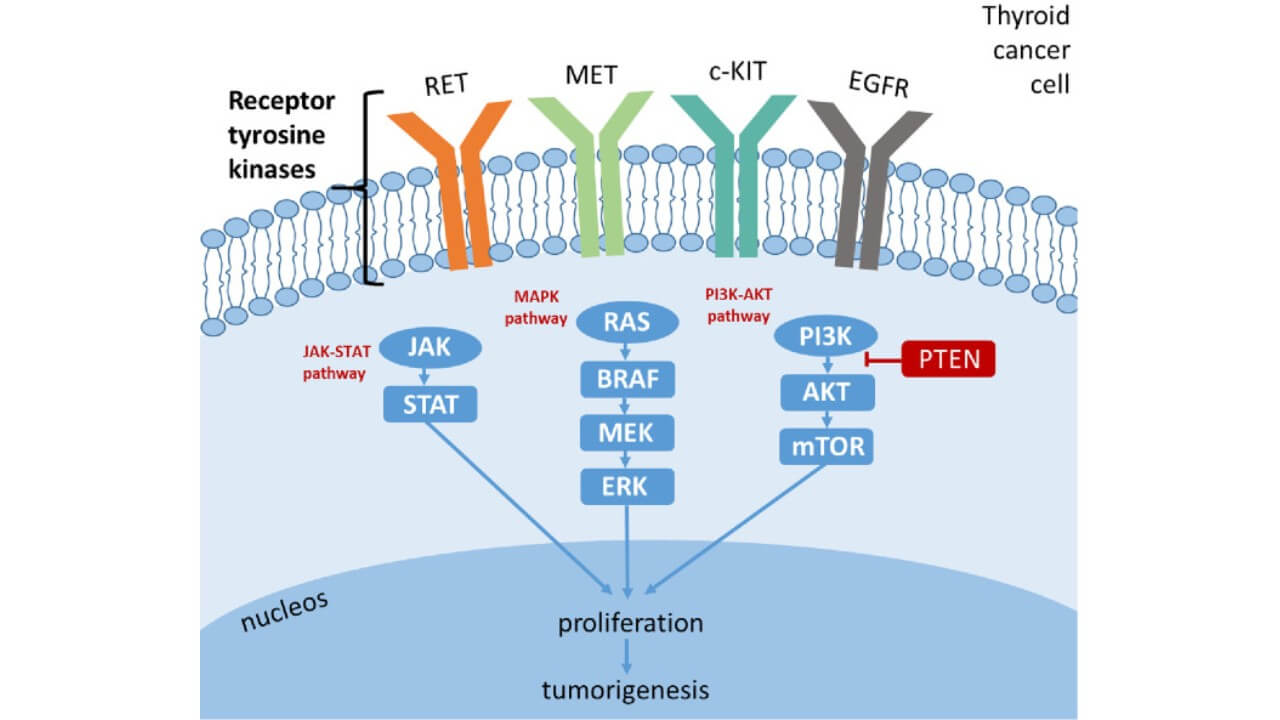
Dendritic cell therapy
Dendritic cell therapy is a modern method of immunotherapy that activates the immune system against the tumor. Blood cells are taken from the patient, from which dendritic cells are made in the laboratory 一 specialized antigen-presenting cells that teach T-lymphocytes to recognize and destroy cancer cells. The fundamental role of dendritic cells in initiating immune responses was recognized with the Nobel Prize in Physiology or Medicine in 2011.
This approach is particularly effective in anaplastic thyroid cancer when traditional chemotherapy or radioactive iodine therapy does not give the expected result. In German hospitals dendritic cell therapy is part of a personalized treatment that is selected based on the molecular profile of the tumor.
The mechanism of action is to trigger a specific immune response against tumor cells that have previously escaped the control of the immune system. After injection of the activated dendritic cells stimulate T-lymphocytes to attack the tumor, even in the case of distant metastases.
Understanding how these cells work, when they are most effective, and how therapy is combined with other treatments is best explained by the expert himself in the following interview.
Radioiodine therapy
Patients with papillary and follicular thyroid carcinoma who retain the ability to accumulate iodine are treated with radioiodine therapy (RAI). Radioactive iodine is selectively absorbed by thyroid cells and accumulates in the tumor tissue. The radiation causes the death of tumor cells, with minimal effect on healthy structures.
RAI is only effective when there is active iodine transport in the tumor, so it is used less often in cases of anaplastic cancer. However, in advanced differentiated forms, the method helps to reduce the risk of relapse and control metastases in the lymph nodes.
Embolization of metastases
Metastases can be surgically removed in only a small number of patients. Therefore, to destroy metastatic foci, hospitals often give preference to a minimally invasive procedure for cancer treatment in Germany called embolization. The essence of the technique is that the doctor blocks the vessels providing blood supply to the tumor with emboli – chemicals. The last ones are injected into the arteries. As a result, the tumor tissues do not receive enough oxygen and quickly die.
The procedure does not require open surgery. The doctor makes a small incision in the skin and then inserts a catheter into the arterial bed. A contrast agent is used to detect the vessels supplying the tumor. Then the arteries are blocked by emboli, which stop the blood supply to the tumor. The procedure is performed under X-ray guidance, making minimally invasive cancer treatment in Germany a safe and effective alternative to surgery for advanced cancer cases.
Recently, for thyroid cancer stage 4, Germany has been increasingly using transarterial chemoembolization (TACE). This type uses microspheres with anticancer drugs. Medications are released in doses over several weeks after the procedure, affecting only the pathological focus. Chemoembolization for stage 4 cancer treatment in Germany provides additional damage to cancer cells and prevents the growth of metastases, improving patient outcomes and overall survival.
As embolization techniques continue to expand, doctors now rely on more precise materials, better imaging and selective catheterization to control metastatic disease even in complex stage 4 cases. A clear overview of how these methods work in real practice is presented in the interview.
Personalized approach in Germany
One of the main advantages of treatment in Germany is a personalized approach. Patients undergo high-quality diagnostics, which include molecular genetic analysis, assessment of thyroid function and immune profile. Based on the data obtained, an individual treatment plan is formed, which can combine targeted therapy, dendritic cells and radioiodine therapy.
German hospitals have specialized centers for the treatment of thyroid cancer, where interdisciplinary teams work 一 oncologists, endocrinologists, radiologists and surgeons. Their interaction allows to provide the highest quality of therapy, even in rare forms of the disease, and significantly increases the patient's chance of recovery.
Why is it advisable to undergo treatment in Germany?
The treatment of stage 4 thyroid cancer in German oncology hospitals is almost always successful due to the following reasons:
- Effective treatment methods — the use of modern medical protocols and the best drugs
- High-quality diagnosis — the use of molecular genetic tests to accurately determine the type of tumor and select an effective treatment method
- Advanced equipment — each medical center has innovative equipment for all types of modern medical procedures
- Highly qualified specialists — all practicing oncologists undergo training at prestigious universities and long internships
- Government funding — huge funds are allocated annually for the various medical fields
European hospitals also pay due attention to rehabilitation after the completion of the main course of treatment for the full recovery of patients. The leading German hospitals that demonstrate the highest success rates in the treatment of advanced thyroid cancer are:
- Martha-Maria Hospital Munich, Department of General and Abdominal Surgery, Hernia Surgery, Endocrine Surgery, Thoracic Surgery
- University Hospital Ulm, Department of General and Abdominal Surgery
- University Hospital Marburg UKGM, Department of Abdominal, Thoracic and Vascular Surgery
- University Hospital Carl Gustav Carus Dresden, Department of Abdominal and Colorectal Surgery, Hepatobiliary Surgery, Hernia Surgery, Bariatric Surgery, Endocrine Surgery, Thoracic and Vascular Surgery
You can find the detailed and updated information about these and other hospitals on the Booking Health website.
The cost of stage 4 thyroid cancer treatment in Germany varies depending on several important factors. The stage of the disease determines the complexity of therapy and the number of required procedures. The type of treatment — whether it involves surgery, targeted therapy, dendritic cell therapy, or TACE — also significantly influences the final price. The length of hospital stay and the type of rehabilitation and postoperative support additionally affect total expenses. International patients can receive full coordination and cost optimization through the Booking Health platform, which helps select the most suitable hospital and treatment program in Germany.
| Treatment Method | Mechanism of Action | Advantages | Cost of treatment |
|---|---|---|---|
| Targeted Therapy | Blocks specific molecular pathways (e.g., BRAF, RET, VEGF) to inhibit tumor growth and angiogenesis | Highly selective, less systemic toxicity than chemotherapy, can control thyroid tumors progression | €375,000 - €420,000 in Germany €400,000 - €500,000 in Great Britain €600,000 - €1,000,000 in the USA |
| Dendritic Cell Therapy | Activates patient’s immune system to recognize and destroy tumor cells via antigen presentation | Induces long-term immune memory, can target metastases | €20,000 - €38,000 in Germany Not available in Great Britain €100,000 - €150,000 in the USA |
| Embolization / TACE | Blocks blood supply to metastases, sometimes combined with local delivery of cytotoxic drugs | Minimally invasive, preserves surrounding tissue, reduces thyroid tumors size | €6,500 - €24,000 in Germany €25,000 - €45,000 in Great Britain €40,000 - €100,000 in the USA |
| Radioiodine Therapy (RAI) | Radioactive iodine is absorbed by thyroid cells and metastatic tumor cells, causing DNA damage and cell death | Selectively targets thyroid nodules with tumor cells, minimal effect on healthy tissue | €16,900 - €17,600 in Germany |
A Medical Journey: Every Step of the Way With Booking Health
Finding the best treatment strategy for your clinical situation is a challenging task. Being already exhausted from multiple treatment sessions, having consulted numerous specialists, and having tried various therapeutic interventions, you may be lost in all the information given by the doctors. In such a situation, it is easy to choose a first-hand option or to follow standardized therapeutic protocols with a long list of adverse effects instead of selecting highly specialized innovative treatment options.
To make an informed choice and get a personalized cancer management plan, which will be tailored to your specific clinical situation, consult medical experts at Booking Health. Being at the forefront of offering the latest medical innovations for already 12 years, Booking Health possesses solid expertise in creating complex management programs in each individual case. As a reputable company, Booking Health offers personalized treatment plans with direct clinic booking and full support at every stage, from organizational processes to assistance during treatment. We provide:
- Assessment and analysis of medical reports
- Development of the medical care program
- Selection of a suitable treatment location
- Preparation of medical documents and forwarding to a suitable clinic
- Preparatory consultations with clinicians for the development of medical care programs
- Expert advice during the hospital stay
- Follow-up care after the patient returns to their native country after completing the medical care program
- Taking care of formalities as part of the preparation for the medical care program
- Coordination and organization of the patient's stay in a foreign country
- Assistance with visas and tickets
- A personal coordinator and interpreter with 24/7 support
- Transparent budgeting with no hidden costs
Health is an invaluable aspect of our lives. Delegating management of something so fragile yet precious should be done only to experts with proven experience and a reputation. Booking Health is a trustworthy partner who assists you in pursuing stronger health and a better quality of life. Contact our medical consultant to learn more about the possibilities of personalized treatment with innovative methods and with leading specialists in this field.
Modern Cancer Treatment: Patient Journeys with Booking Health
Frequently Asked Questions of Our Patients About Stage 4 Thyroid Cancer Treatment in Germany
Send request for treatmentThe survival rate for stage 4 thyroid cancer depends on the tumor type and spread. When thyroid cancer is diagnosed early, the chances of complete recovery are significantly higher. With advanced stage 4 thyroid cancer treatment in Germany many patients achieve prolonged remission and improved quality of life.
Yes, thyroid cancer treatment in Germany is among the most effective worldwide. German hospitals combine different innovative therapies offering international patients precise diagnostics and individualized care, even in advanced cancer stages.
Doctors apply multimodal treatment options for thyroid cancer in Germany (surgery, targeted therapy, hormone therapy, embolization and dendritic cell immunotherapy). Each plan is personalized to tumor biology and patient condition.
The treatment cost thyroid cancer Germany depends on tumor stage, therapy type, and hospital stay duration. Average prices vary, depending on the type of treatment.
Life expectancy for patients with advanced disease depends on cancer type and therapy response. Thanks to different treatment programs in Germany, many patients experience longer survival and improved life quality.
Modern treatment options for thyroid cancer in Germany include 一 surgery, radiotherapy, targeted therapy and dendritic cell immunotherapy. German oncology centers use personalized strategies to manage aggressive tumors.
The cost of advanced thyroid cancer therapy varies with clinical complexity. The price depends on diagnosis, treatment and postoperative care. Booking Health helps optimize expenses and hospital selection.
Typical stage 4 thyroid cancer symptoms include neck swelling, voice changes, pain while swallowing and signs of metastases such as bone pain or breathing difficulties. Recognition at early stages and prompt therapy in German clinics significantly improve outcomes.
Yes, targeted therapy for thyroid cancer combined with dendritic cell immunotherapy can suppress tumor progression and enhance survival. German oncology centers apply these modern approaches to control advanced disease.
Each international patient thyroid cancer in Germany program offers multidisciplinary expertise, advanced technology, and individualized treatment. German hospitals are globally recognized for precision oncology and success in managing late-stage thyroid cancer.
Complete cure is rare, yet thyroid cancer 4-stage diagnosis doesn’t mean hopelessness. With advanced treatment in Germany, many patients achieve long-term remission, stable disease control, and a substantial improvement in life expectancy.
Targeted therapy works by blocking specific molecular pathways that control tumor growth and angiogenesis. This allows selective action on cancer cells with minimal systemic toxicity.
Dendritic cell therapy activates the patient’s immune system to recognize and destroy tumor cells. Presenting tumor antigens to T-lymphocytes induces a long-term immune response. This treatment method is particularly useful in immunotherapy thyroid cancer advanced cases, where standard treatments are less effective.
Embolization or transarterial chemoembolization (TACE) is applied for unresectable metastatic lesions. It blocks blood supply to metastases delivering cytotoxic drugs locally.
Radioiodine therapy (RAI) is effective for differentiated thyroid cancers 一 such as papillary and follicular types that retain iodine uptake. The radioactive iodine selectively destroys thyroid tumor cells while sparing healthy tissue.
Choose treatment abroad and you will for sure get the best results!
Authors:
This article was edited by medical experts, board-certified doctors Dr. Nadezhda Ivanisova, and Dr. Bohdan Mykhalniuk. For the treatment of the conditions referred to in the article, you must consult a doctor; the information in the article is not intended for self-medication!
Our editorial policy, which details our commitment to accuracy and transparency, is available here. Click this link to review our policies.
Source:
Read:
Cancer immunotherapy in Germany
Dendritic cell therapy in cancer treatment in Germany - Vaccination against cancer
Article menu:
- Understanding Stage 4 Thyroid Cancer
- Standard Treatments for Thyroid Cancer Stage 4 in Germany
- Advanced Treatment Options in Germany for Stage 4 Thyroid Cancer
- A Medical Journey: Every Step of the Way With Booking Health
- Frequently Asked Questions of Our Patients About Stage 4 Thyroid Cancer Treatment in Germany
Don't know where to start?
Contact Booking Health